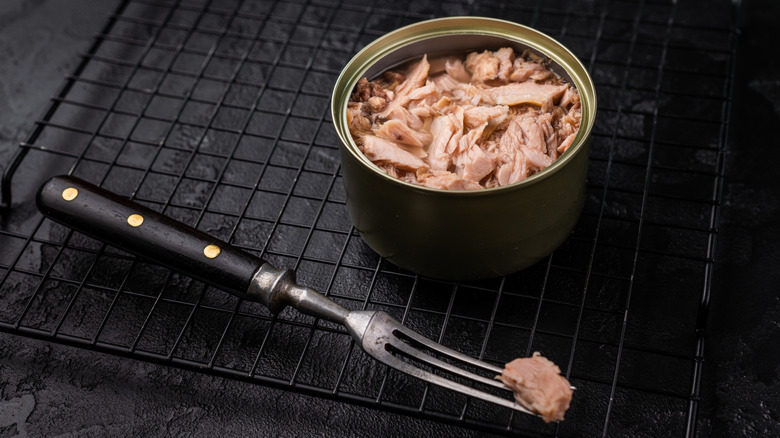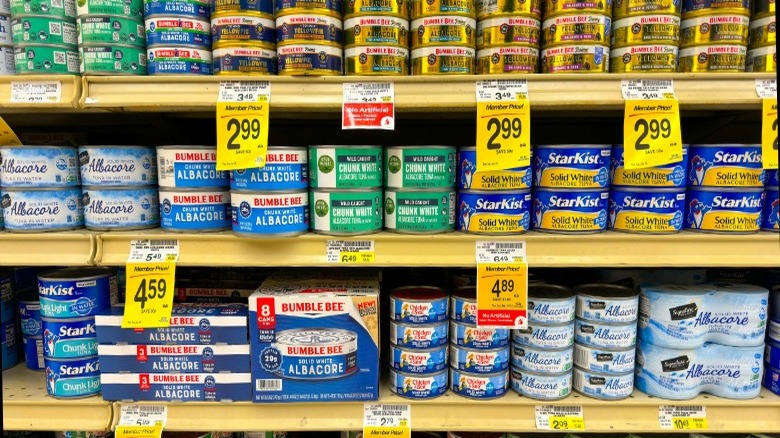Is Canned Tuna Safe To Eat Every Day?
Canned tuna is a pantry hero. It's affordable, packed with protein, long lasting, and endlessly versatile. Whether you prefer mixing it into a quick salad or using it to craft the perfect cheesy tuna melt, it's easy to see why so many of us rely on it as a go-to staple. But, can you eat it every day? That's where things get a little fishy. Unfortunately, the answer isn't a simple yes or no – it depends on the type of tuna, your age, health status, and how much tuna you're eating. Health experts, including the Food Drug Administration and Consumer Reports, agree that while canned tuna can be part of a healthy diet, there are important things to take into account.
The main concern with daily tuna consumption comes down to mercury, a toxic heavy metal that accumulates in fish over time. Tuna, especially larger species, tends to have higher levels of mercury compared to other seafood. According to the United States Environmental Protection Agency, when consumed in excess, mercury can affect the brain and nervous system. Over time, mercury can affect memory, coordination, and cardiovascular health. What's more, mercury in food poses the greatest risk to pregnant people, young children, and older adults.
It's not all doom and gloom. Tuna are a fantastic source of protein, omega-3 fatty acids, vitamin B12, and minerals. For most healthy adults, the occasional serving of light tuna probably won't pose a major health risk (even if you eat it a few days in a row), but it's not ideal to eat it every day for a long period of time; even moderate mercury exposure can add up.
Know your types of tuna
There are two main types of canned tuna: light (skipjack) tuna and albacore (white) tuna. The mercury content of these fish is not equal. Canned light tuna is lower in mercury and generally considered the safer option when it comes to more frequent consumption. Canned albacore tuna is higher in mercury (it contains about three times more than light tuna) and should be eaten more sparingly. The Food and Drug Administration suggests that pregnant individuals limit themselves to no more than one 4-ounce serving of albacore tuna per week. Children under 11 should eat less than 4 ounces per week. The FDA deems light tuna safer, suggesting people in these groups can safely eat up to three 4-ounce servings weekly. However, Consumer Reports takes a more cautious stance, recommending pregnant people avoid tuna altogether due to the inconsistent mercury levels found in both light and albacore varieties (some cans contain far more mercury than average).
If you live for your tuna salad, opt for canned light tuna and check for brands that test for mercury and follow sustainable fishing practices. If you need help deciding which tuna to purchase, we've ranked canned tuna brands from best to worst. Bottom line? Canned tuna is safe in moderation, but eating it every day can increase your risk of mercury exposure, especially if you're pregnant, a young child, or an older adult.

